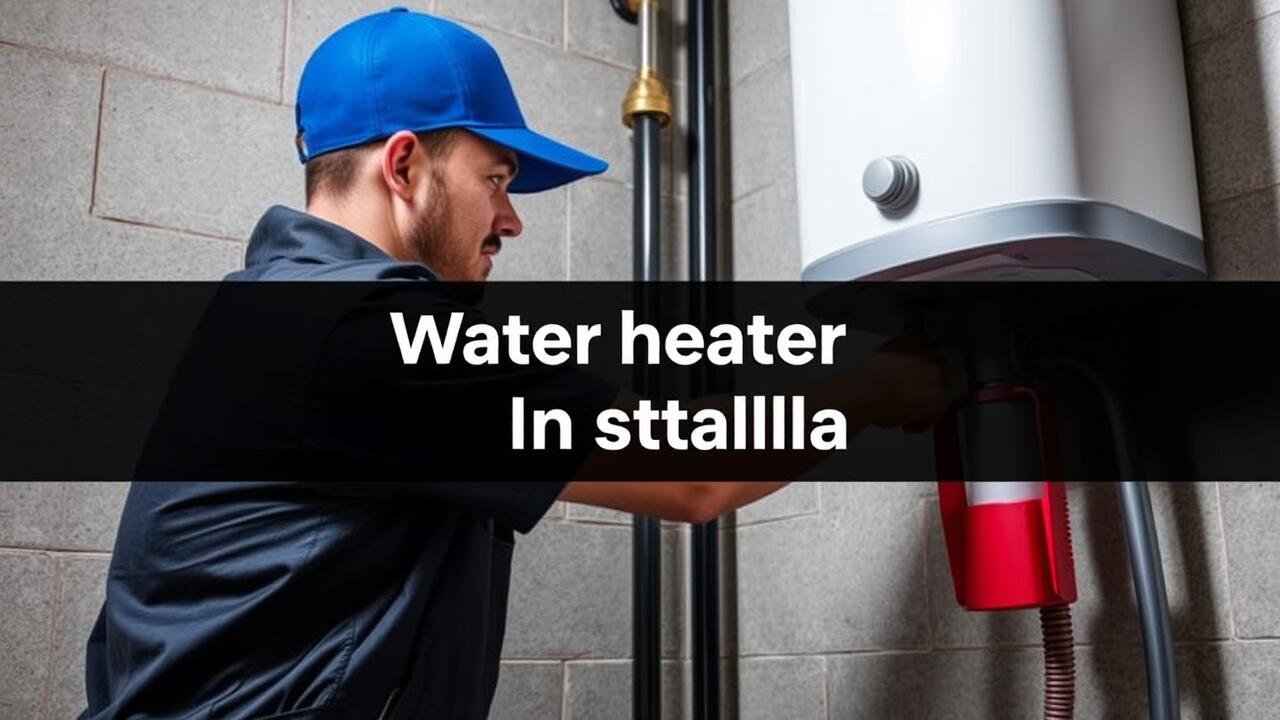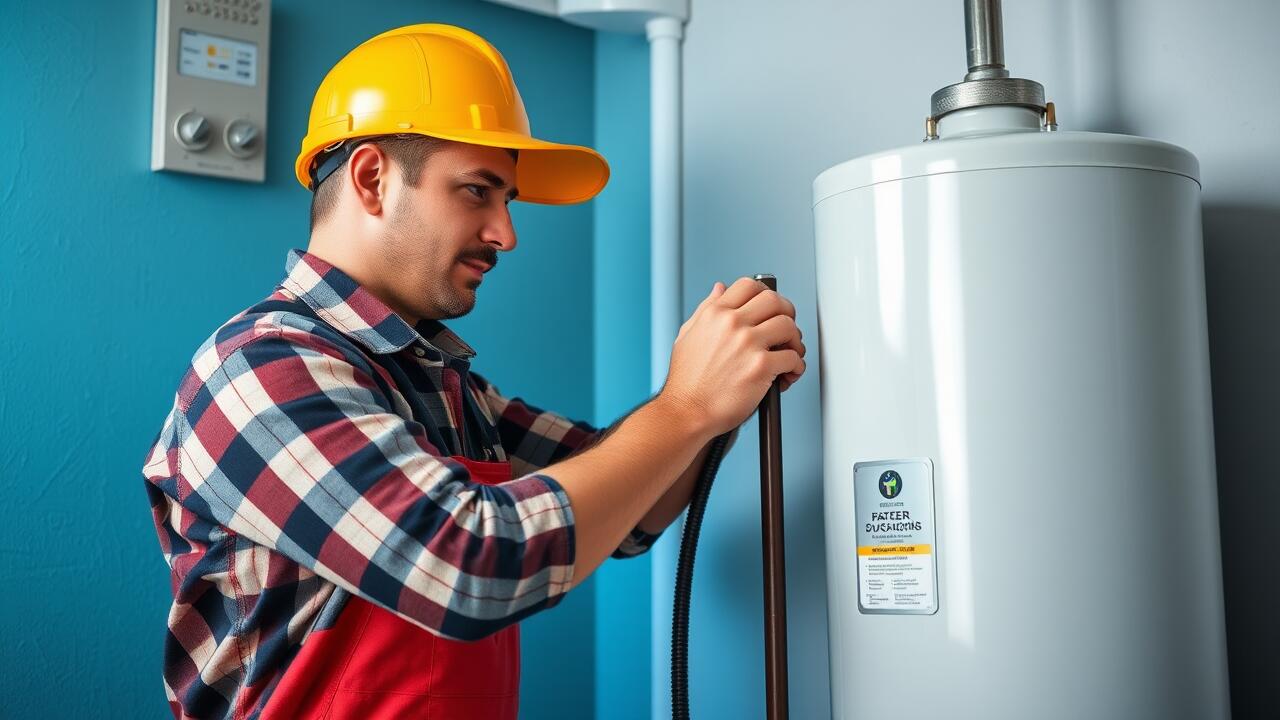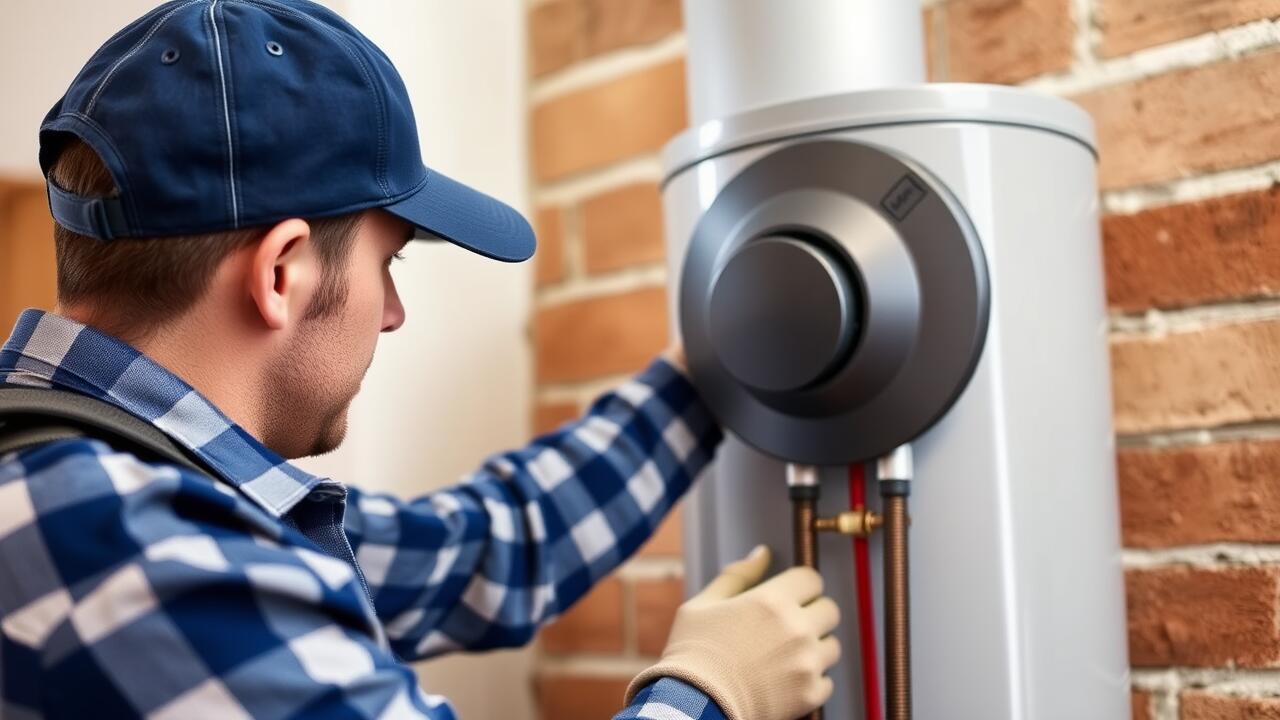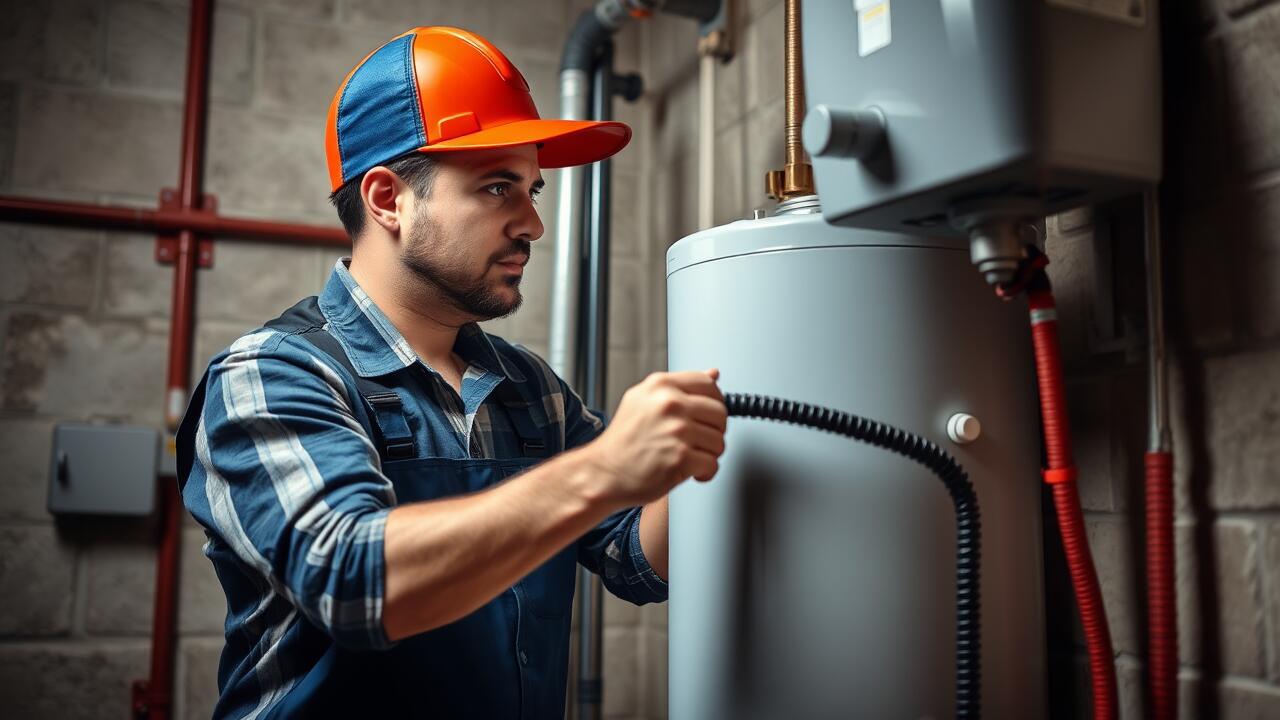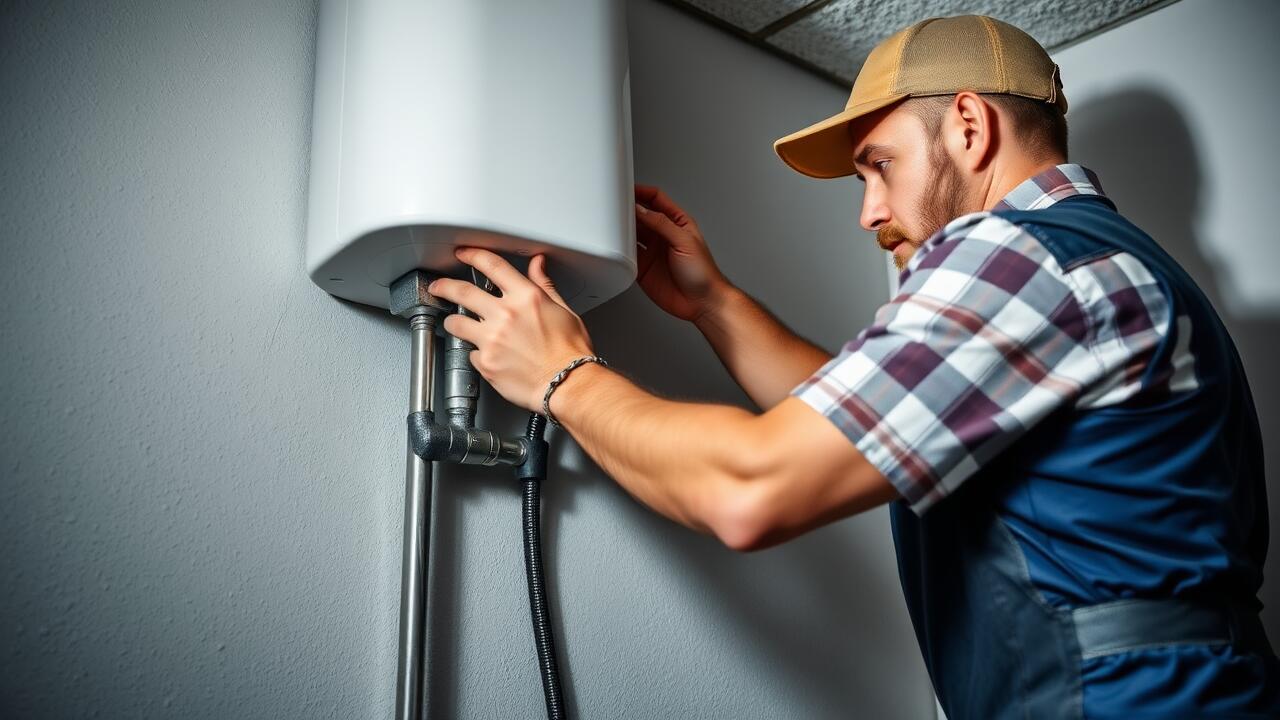
Choosing the Right Size Water Heater
Selecting the appropriate size water heater is critical for ensuring that a household meets its hot water needs efficiently. Factors such as the number of occupants, usage patterns, and peak demand times all play a significant role in determining the right capacity. A larger family or a home with multiple bathrooms may require a water heater with a higher gallon capacity, while smaller households can often suffice with a compact unit.
Homeowners in Echo Park, Los Angeles, should also consider the energy source for their water heaters, whether gas or electric. Different energy types may impact the size and efficiency of the unit, influencing long-term costs. Additionally, consulting with professionals for water heater installation in Echo Park, Los Angeles, ensures not only proper sizing but also adherence to local plumbing codes and practices for optimal performance.
Calculating the Right Capacity for Your Home
Determining the right capacity for your home’s water heater is essential for ensuring efficient hot water supply and energy usage. Household size, peak usage times, and the number of water-using appliances play a significant role in calculating the necessary capacity. For example, a family of four typically requires a water heater with a capacity of 50 to 60 gallons. Evaluating your daily hot water consumption can help guide this decision, ensuring homeowners avoid both under-sizing and over-sizing, which can lead to higher energy costs.
When it comes to Water heater installation Echo Park, Los Angeles, local climate can also influence your choice of capacity. Homes in areas with colder climates may require a larger unit to meet higher demands during winter months when water temperature is lower. Additionally, considering the recovery rate, which indicates how quickly a heater can produce hot water after a demand surge, is crucial. This rate, combined with the storage capacity, helps in finding the optimal solution that balances comfort and efficiency for your household's needs.
Upgrading Existing Plumbing During Installation
When installing a new water heater, it is essential to assess the existing plumbing for any necessary upgrades. Old and deteriorated pipes may not handle the increased efficiency or capacity of a new unit. Inspecting connections, valves, and drainage systems helps ensure that everything works optimally with the new heater. Homeowners in Echo Park, Los Angeles, should consider whether their current plumbing setup can support the new unit’s specifications and demands.
Any needed upgrades can significantly impact the overall cost of the installation. Replacing outdated pipes or fittings can lead to additional labor and materials expenses. It's advised to obtain quotes from local professionals familiar with water heater installation Echo Park, Los Angeles, as they can provide insights into the best practices and costs associated with any necessary plumbing modifications. Investing in plumbing upgrades can lead to improved performance and longevity of the new water heater.
Cost Implications of Plumbing Modifications
Upgrading existing plumbing during a water heater installation can lead to significant cost implications. Depending on the age and condition of the current plumbing system, modifications may be necessary to ensure compatibility with the new unit. This could involve replacing old pipes, adding new fittings, or even rerouting plumbing lines. Each of these changes requires both materials and labor, which can escalate the overall investment in the installation process.
Water heater installation Echo Park, Los Angeles, often presents unique challenges due to the variety of building codes and local regulations. Homeowners may also need to consider the cost of permits, inspections, or even hiring specialized contractors familiar with local standards. Ultimately, these additional expenses play a crucial role in the final pricing of a water heater installation project, making it essential to factor them into the budget from the outset.
Common Installation Challenges
Installing a water heater often comes with several challenges that can complicate the process and increase costs. One significant factor is the accessibility of the installation site. Many homes may have limited space in utility rooms or cramped basements, making it difficult for technicians to maneuver equipment. In tight spots, reaching existing piping can be cumbersome, potentially extending the time and labor needed to complete the job. Homeowners in areas like Echo Park, Los Angeles, should be particularly mindful of these spatial constraints during installation planning.
Another common issue arises when modifications to existing plumbing are necessary. Older homes may have outdated or incompatible plumbing systems, leading to additional work and costs. Inspecting the current setup before installation can help identify potential problems early. For residents considering water heater installation in Echo Park, Los Angeles, it's wise to consult with professionals who can assess the plumbing conditions and advise on possible upgrades to ensure the system operates efficiently.
Accessibility and Space Limitations
Accessibility issues can significantly impact water heater installation. Many homes have limited space in utility areas, making it challenging to maneuver large appliances. Very tight fittings can necessitate the use of specialized tools or additional labor to facilitate the installation. A technician may need to assess entry points and pathways to ensure they can safely bring in and position the water heater without damaging existing structures.
In neighborhoods like Echo Park, Los Angeles, where homes often have unique layouts, the space limitations can vary widely. Some homes have cramped basements or narrow crawl spaces, requiring installers to develop creative solutions. These constraints can lead to increased labor costs if extensive adjustments are needed to fit the new unit. Each installation scenario presents its own set of challenges, emphasizing the importance of a detailed pre-installation inspection.
FAQS
What factors influence the cost of installing a new water heater?
Several factors can influence the cost, including the type and size of the water heater, any necessary plumbing upgrades, local labor rates, and the complexity of the installation.
How do I determine the right size water heater for my home?
To determine the right size, consider your household's hot water needs, the number of occupants, and peak usage times. Consulting a professional can also help ensure you choose the appropriate capacity.
Are there additional costs associated with upgrading existing plumbing?
Yes, upgrading plumbing may incur additional costs, including materials and labor for any necessary modifications to accommodate the new water heater.
What are some common installation challenges I should be aware of?
Common challenges include limited access to the installation area, outdated plumbing, and compliance with local building codes, which may require additional time and resources to address.
How can I save money on water heater installation costs?
To save money, consider obtaining multiple quotes from licensed professionals, exploring energy-efficient models that may qualify for rebates, and ensuring that the installation is scheduled during off-peak times for labor rates.
